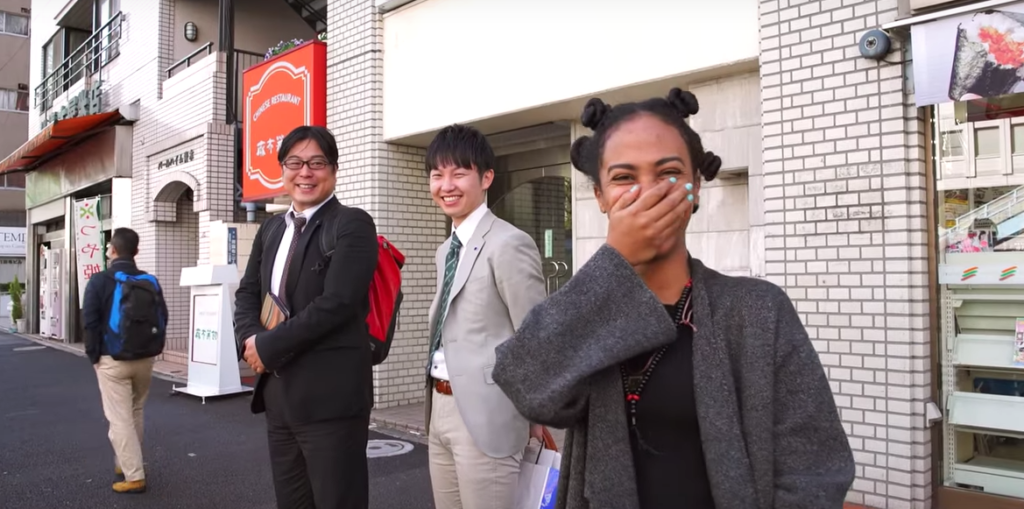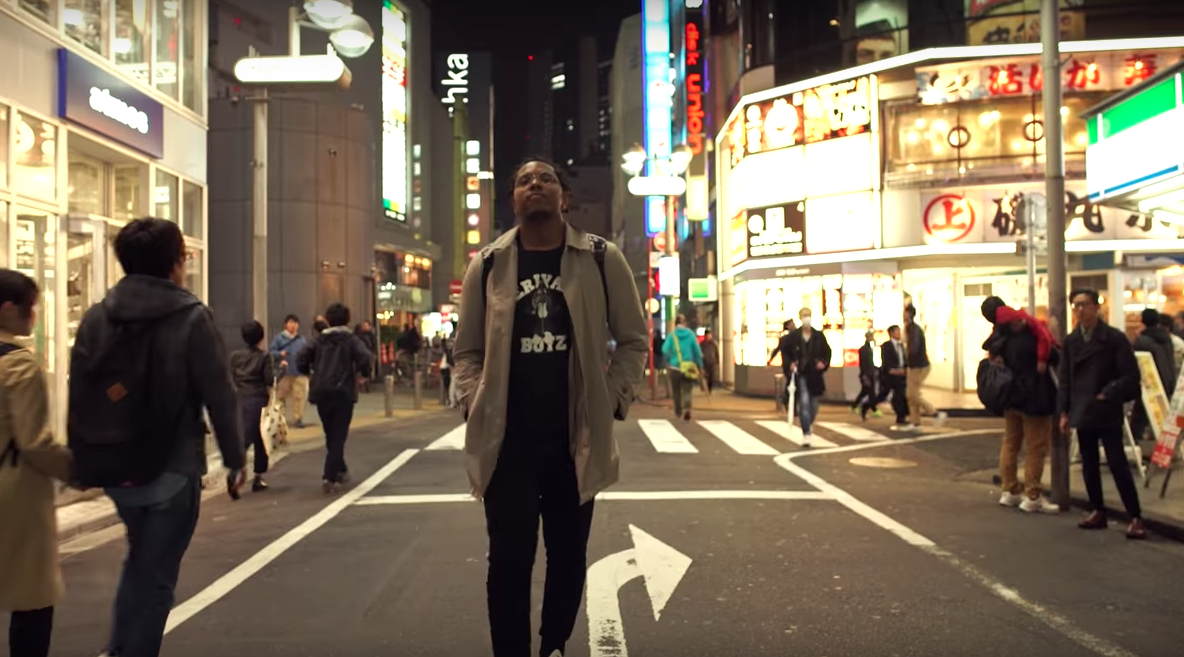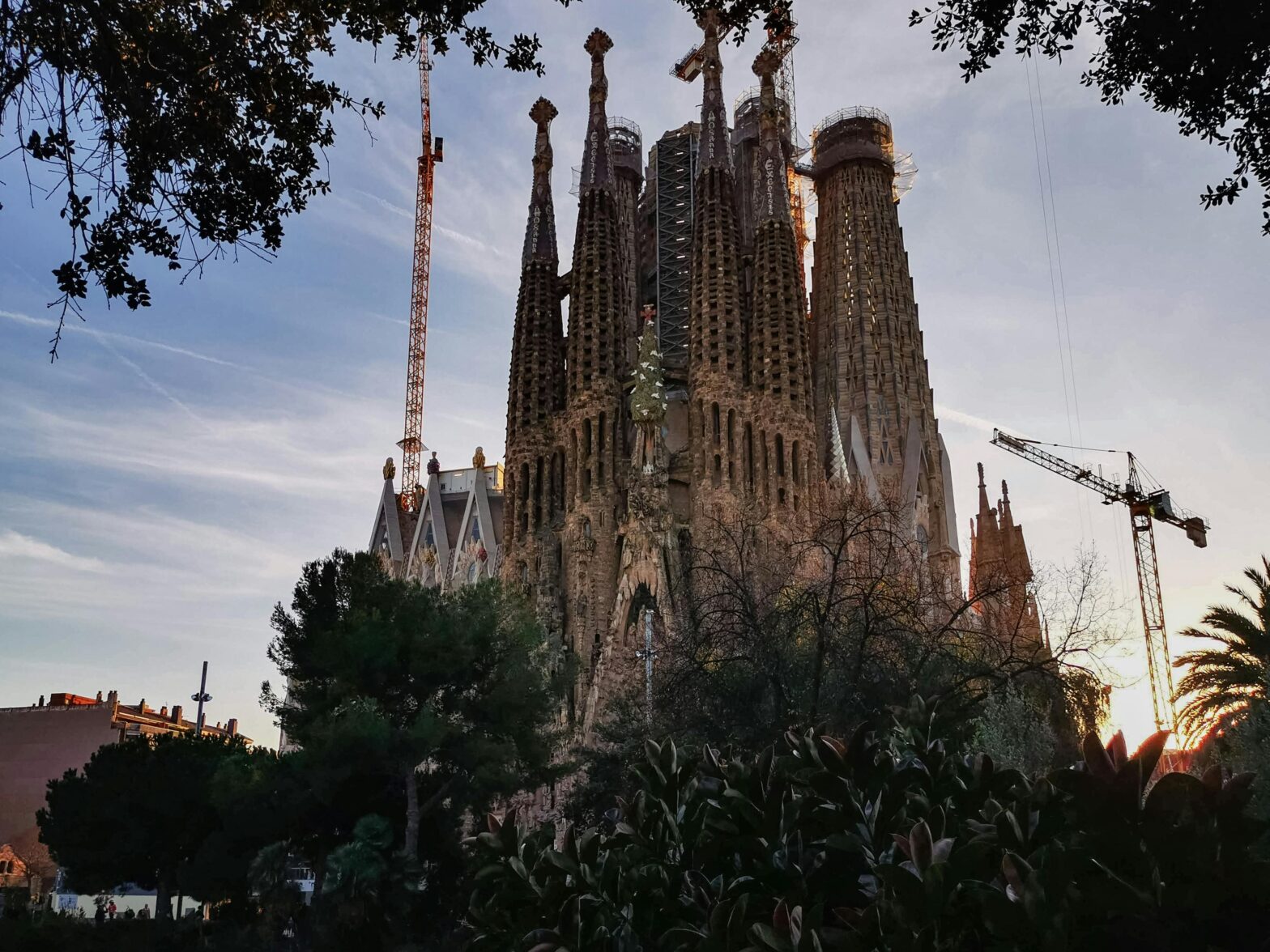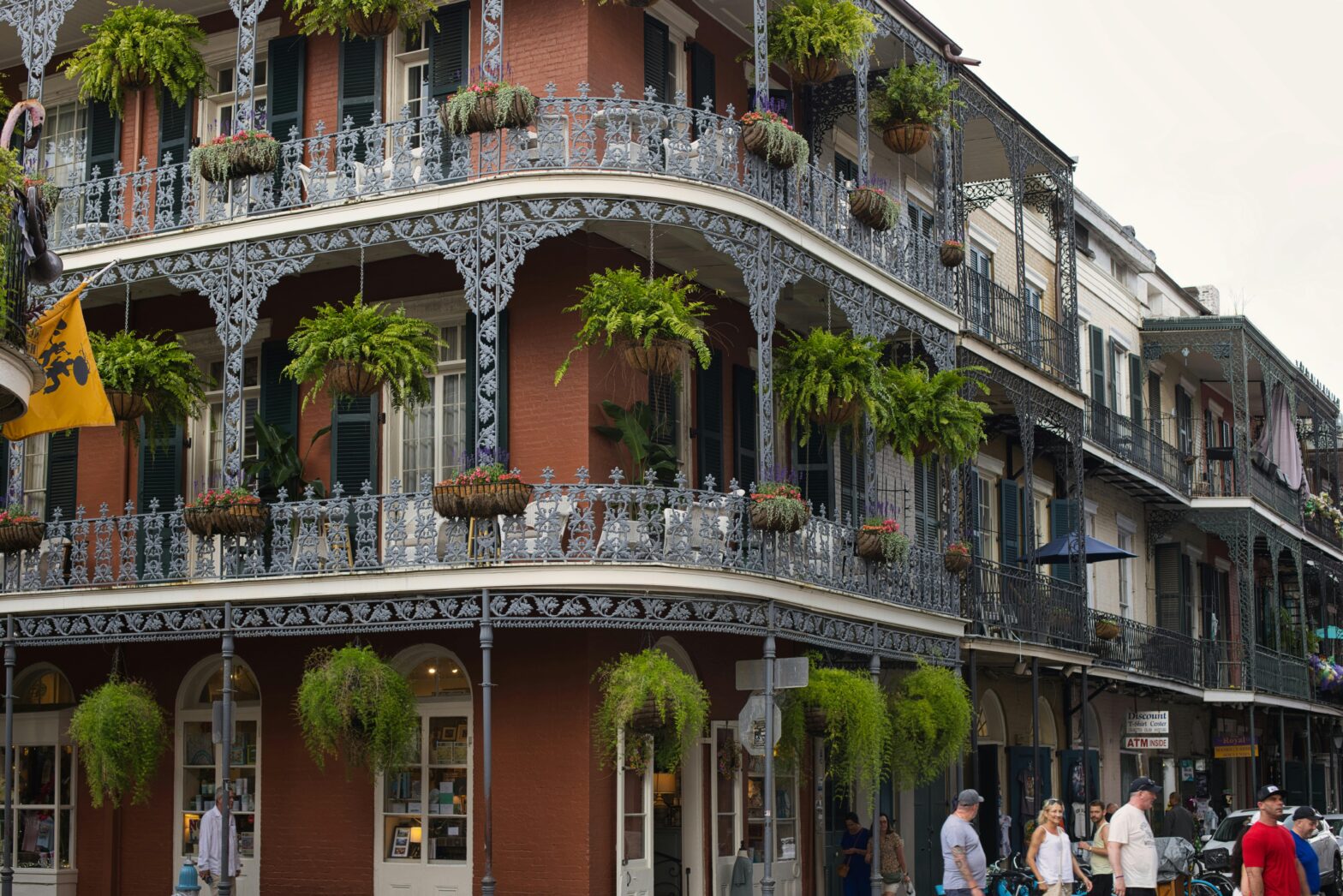James Baldwin left the United States for what he felt to be fairer climes.
“African Americans discover in Paris the terms by which they can define themselves,” the writer said of one of his homes away from home. “It’s the freedom to work beyond the assumptions of what we can and can’t do as African Americans. It’s a different rhythm and pace. We can imagine ourselves in new ways in that space.”
Like Baldwin before her, Nigerian American artist Amarachi Nwosu found a new language by which to imagine herself and members of the African diaspora through living abroad.
Unlike the creatives of the 20th century, Nwosu didn’t move to Paris. Instead, she set up shop in Tokyo.
RELATED: The Joy of Being an Expat: What I Learned Living Abroad
There, she says she “learned a lot about myself before anything,” finding in Japan “a space where I was able to really reflect introspectively, [allowing] me to understand Japanese culture, and also gain an awareness of how my own social conditioning shapes how I see the world.” That understanding was deepened by a project she began in 2016.
As she learned to navigate Tokyo, Nwosu began to make friends with other black expats. As an artist with a specific expertise in international communications, Nwosu found herself with “an opportunity to create stories on black expats that most people rarely get to see, especially when it comes to black people living in Asia.”
She decided to make a documentary using her black expat friends as subjects, having grown “really frustrated with the representations that I saw in mainstream media, especially when it came to stories on the black identity.”
Nwosu felt in particular that “there is a lack of media on complex identities when it comes to black women,” and saw this film project both as “an opportunity to expand my comfort zone” and as a way to expand her “perspective on the world.”
As you may know, making a film isn’t easy.
“I had a lot of groundwork to put in, and had to take my time,” Nwosu says.
She carefully assembled her cast, working to ensure that she captured “a diverse cast of different backgrounds to expose just how complex black culture and identity is.”
After careful consideration, Nwosu chose five expats to focus on.
American couple Trice and Will McCrory are members of the U.S. military that live on base near Tokyo. Taking advantage of where they were stationed, the two have immersed themselves in the city’s fashion scene.
Emel Ahmed, a model and artist of Eritrean and Djibouti descent who is a fixture of Tokyo’s art scene, has had her exhibited at several of the city’s galleries.

Antarius Reynolds, a musician and designer, has made music for many of Japan’s top brands. Recently, his clothes have been embraced by rising American rappers like Lil Uzi Vert.
Finally, Nwosu chose to profile Lee Marshal, a Ghanaian man who has lived in Tokyo for more than 25 years, and who is the owner of one of Tokyo’s first black hair salons.
“People in the cast came from all walks of life and countries like Ghana, Eritrea and the U.S.,” Nwosu says. “Although they were all of black descent, they all were living very different truths from very different viewpoints.”
In following the varied truths of these characters, Nwosu says she arrived at a very important truth: “through the film … I really realized how powerful black culture is in shaping pop culture all over the world.”
Too, she began to wonder why people around the world don’t have a chance to engage with the varied viewpoints of black people from diverse experiences more often.
To give people that chance, Nwosu created Melanin Unscripted, “a visual platform that shows the unscripted and real-life perspective of creatives around the world.”
“We are in a time where we need to shape narratives in real life because we can’t wait for the media to do that for us,” Nwosu says. “It’s time we create our own content, create our own spaces and be apart of shaping the world around us on a larger scale.”
Nwosu’s film, called Black in Tokyo, will be Melanin Unscripted’s first release; she was in New York recently to premiere the film at the International Center of Photography.
With Black in Tokyo now out in the world, Nwosu already has her sights set on future projects.
“I am actually moving back to Tokyo in January,” she says. And she plans to use her time there “as an opportunity to keep expanding visual dialogue and narrative on the black experience throughout the world.”
This article was written by Sean Collins and originally appeared on Blavity.





